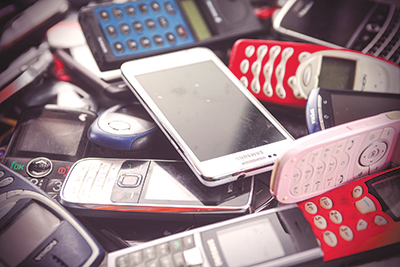Thirty local councils from around Australia are in the running for a Top Recycler award in this year’s MobileMuster Local Government Awards.
MobileMuster, Australia’s only government accredited, not-for-profit mobile phone recycling program has been working with local councils for more than 10 years to encourage the community to recycle.
The awards recognise the Top Collector in each state, along with the Overall Top Collector, Top Collector Per Capita and the National Excellence Award.
The awards are based on the council who has collected the most mobile phone components for recycling between 1 May 2015 and 30 April 2016 in each State and Nationally.
The Awards acknowledge the great support received from local government in ensuring the industry keeps its promise; that mobile phone products don’t end up in landfill and are instead recycled in a safe, secure and ethical way.
Spyro Kalos, Recycling Manager, MobileMuster, is encouraging all councils across Australia to help divert thousands of tonnes of non-renewable resources out of landfill and back into the supply chain.
“Councils play a major role in educating and providing convenient drop-off locations for residents to recycle their old mobile phones and accessories.
“Over the last 10 years local councils have collected over 24 tonnes of mobile phone components including approximately 176,000 handsets, 135,000 batteries and 7000kg of accessories.
“However, with an estimated 25.5 million old mobile phones sitting in drawers either broken or unused around Australia, there is a lot of potential e-waste that could end up in landfill if not recycled.”
The winning councils will be announced at the Australian Local Government Association (ALGA) National General Assembly in Canberra 19th–22th June 2016.
If your council doesn’t currently participate in the MobileMuster program and is interested in getting involved visit mobilemuster.com.au/councils or call 1300 730 070. Once registered MobileMuster can provide you with free collection units tailored for admin centres, libraries and waste transfer sites, plus resources to promote the program.








